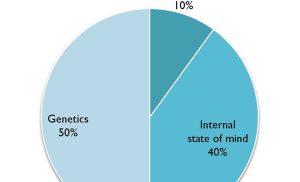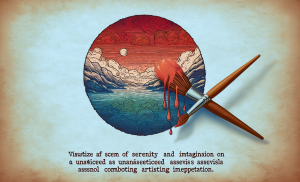What Are The Differences Between Acute And Chronic Stress?
Stress is something we all experience, but did you know that not all stress is the same? In fact, there are two main types of stress: acute and chronic. While both can have negative effects on our well-being, it’s important to understand the differences between them. Acute stress is the kind that hits us in the moment, like when we encounter a stressful situation or have a deadline to meet. It is a short-lived and temporary response that our body activates to cope with the immediate challenge. On the other hand, chronic stress is a long-term state of stress that persists over an extended period. It can be caused by ongoing problems such as financial difficulties, relationship issues, or chronic health conditions. Understanding the contrasts between acute and chronic stress can help us better navigate and manage the stressors in our lives.
Definition of acute stress
Brief explanation
Acute stress refers to a short-term reaction to a specific situation or event that triggers the body’s natural stress response. It is a normal and adaptive response that helps us deal with challenging or potentially dangerous situations.
Causes
Acute stress can be caused by a variety of factors, such as work deadlines, exams, traffic jams, or unexpected life events like a car accident or an argument. It is typically a direct response to an immediate threat or stressor.
Duration
The duration of acute stress is relatively short-lived, typically lasting from a few minutes to a few days. Once the stressful situation subsides, the body’s stress response system returns to its normal state, allowing us to recover and restore balance.
Symptoms of acute stress
Physical symptoms
During acute stress, you may experience physical symptoms such as rapid heartbeat, sweaty palms, tense muscles, headaches, or digestive issues. These physical sensations are part of the body’s natural response to mobilize energy and prepare for action.
Emotional symptoms
Acute stress can also manifest as emotional symptoms, including feelings of anxiety, irritability, restlessness, or a sense of being overwhelmed. These emotional reactions are a normal response to the perceived threat or stressor.
Behavioral symptoms
In terms of behavior, acute stress can lead to changes in your actions and habits. You may find yourself becoming more easily agitated, having difficulty concentrating or making decisions, experiencing changes in appetite or sleep patterns, or engaging in impulsive behaviors.

Effects of acute stress
Short-term effects
One of the primary effects of acute stress is the activation of the body’s fight-or-flight response. This response triggers the release of stress hormones like cortisol and adrenaline, which increase heart rate, elevate blood pressure, and boost energy levels. It prepares the body to face the immediate threat or challenge.
Fight-or-flight response
The fight-or-flight response, triggered by acute stress, can help you to react quickly and effectively in dangerous situations. It enhances your physical abilities, sharpening focus and reflexes, and allowing you to respond appropriately.
Recovery after stress
Once the acute stressor is resolved or removed, the body naturally begins to recover. The stress response subsides, and your body and mind return to a more balanced and relaxed state. This recovery period allows for rest, repair, and regeneration.
Definition of chronic stress
Brief explanation
Chronic stress, on the other hand, refers to an ongoing state of stress that persists over a long period. It is a prolonged and continuous response to various stressors or demands, often resulting from an inability to cope effectively with these stressors.
Causes
Chronic stress can be caused by various sources, including long-term work pressure, financial difficulties, relationship problems, ongoing health issues, or traumatic experiences. Unlike acute stress, which is a response to an immediate threat, chronic stress is more prolonged and less specific in nature.
Duration
Unlike acute stress, which is short-term, chronic stress persists for an extended period, often lasting weeks, months, or even years. It can become a recurring pattern that affects your daily life and overall well-being.

Symptoms of chronic stress
Physical symptoms
Chronic stress can manifest in a range of physical symptoms, including frequent headaches, muscle tension, chronic pain, fatigue, stomach problems, and a weakened immune system. The ongoing stress response puts a strain on your body, leading to various health issues.
Emotional symptoms
The emotional symptoms of chronic stress may include persistent feelings of anxiety, depression, mood swings, irritability, or a sense of being overwhelmed. The constant pressure and demands can take a substantial toll on your emotional well-being.
Behavioral symptoms
Chronic stress can also impact your behavior, leading to changes in sleep patterns, appetite, and overall lifestyle. You may find yourself becoming less motivated, withdrawing from friends and activities, using unhealthy coping mechanisms (such as substance abuse), or experiencing difficulty concentrating and making decisions.
Effects of chronic stress
Long-term effects
Chronic stress can have profound long-term effects on your health and well-being. It can lead to the development or exacerbation of chronic medical conditions such as cardiovascular disease, diabetes, gastrointestinal problems, or autoimmune disorders.
Impaired immune system
One significant consequence of chronic stress is its negative impact on the immune system. Prolonged stress weakens immune function, making you more susceptible to infections, allergies, and other immune-related disorders.
Increased risk of chronic diseases
The continuous activation of the stress response in chronic stress can contribute to the development of chronic diseases. High levels of stress hormones and inflammation can increase the risk of conditions like hypertension, heart disease, obesity, and mental health disorders.

Differences in onset
Rapid onset of acute stress
Acute stress often has a relatively rapid onset, triggered by a sudden, unexpected event or situation. It can arise within seconds or minutes and elicit an immediate response from the body.
Gradual onset of chronic stress
In contrast, chronic stress tends to have a more gradual onset, building up over time as a result of ongoing stressors or life circumstances. It may not be immediately apparent and can sneak up on you gradually, accumulating the effects of the sustained stress.
Duration of stress
Short-term duration of acute stress
Acute stress is characterized by its short duration, typically lasting only for a brief period of time, ranging from minutes to a few days. Once the stressor or threat is resolved, the stress response recedes, and recovery begins.
Prolonged duration of chronic stress
Chronic stress, on the other hand, refers to an ongoing state, where stress persists for an extended duration. It can continue for weeks, months, or even years, significantly impacting your physical and mental well-being over an extended period.
Causes of stress
Distinct causes for acute stress
Acute stress is usually caused by specific, identifiable events or situations that trigger the stress response. These acute stressors are often short-lived and have a clear beginning and end point.
Diverse causes for chronic stress
In contrast, chronic stress can arise from a variety of sources and can be more complex in nature. It may result from a combination of ongoing stressors, environmental factors, personal circumstances, and internal challenges, leading to a sustained state of stress.
Impact on mental health
Temporary mental impact of acute stress
The mental impact of acute stress is typically temporary and often subsides once the stressor is resolved. However, during the acute stress response, it is common to experience temporary declines in cognitive function, difficulty focusing, memory problems, and heightened emotional reactivity.
Risk of chronic psychological disorders due to chronic stress
Chronic stress, with its persistent and long-lasting nature, can significantly impact mental health. It increases the risk of developing chronic psychological disorders, such as anxiety disorders, depression, post-traumatic stress disorder (PTSD), and substance abuse issues. The constant strain on the mind can have detrimental effects on overall psychological well-being.
In conclusion, acute and chronic stress differ in terms of their duration, causes, and effects. Acute stress is a short-term stress response to immediate threats or challenges, while chronic stress is a prolonged state of stress that persists over a longer period. Acute stress triggers the fight-or-flight response, enabling prompt action, whereas chronic stress weakens the immune system and increases the risk of chronic diseases. Acute stress has a rapid onset but short duration, whereas chronic stress builds up gradually and can last for an extended period. Understanding the differences between these two types of stress is crucial in managing and addressing their impact on our physical and mental well-being.

















